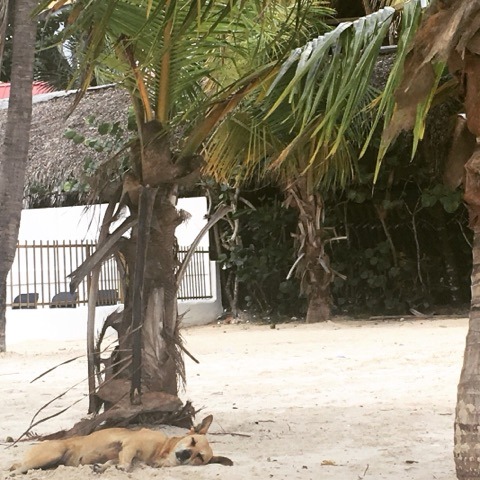Si Dios Quiere: Finding Time to Rest
I arrived in Santo Domingo the first Friday of September, with a small welcome crew to greet me at the airport. I have been preparing for this experience for about a year now, since my second semester of grad school when I approached my professors to ask for advice about what life after college looks like.
Throughout the application process, the interview, the commissioning services, and even packing, I had no idea how to prepare myself for this moment. Standing in line at customs, in an airport I have been in twice before, I started shaking as reality began to set in. I shared the plane with a medical mission team that was headed to La Romana for a week. I explained to the woman sitting next to me about my first trip to the Dominican Republic in 2017. “You’ll fall in love, just know that going in,” I told her.
I traveled twice to Santo Domingo during my undergraduate years, to spend Spring Break working at a local school teaching English and Hygiene. I immediately fell in love with the Dominican Republic and its unique blend of Latin and Caribbean cultures. Beautiful beaches, lively music, warm hospitality, and God at the center of everything. Walking down the street you will see phrases such as “Dios es Amor” or “Dios bendiga esta casa” adorning cars or spray-painted on walls. A common farewell includes “si Dios quiere,” for example “if God wants it, I will see you in the morning.” Growing up in the church and raised by very religious parents, I have always been comforted by this aspect of Dominican culture.
 However, there are also aspects of the culture that have been a little more difficult to adjust to. Less than 6 months ago I was a graduate student taking a full course load, working part-time for the Social Work Department, and juggling a 16-hour-a-week internship at the psychiatric unit of our local hospital. Free time wasn’t something I was accustomed to, and when I did have free time it usually meant that I was neglecting to do something. I would feel guilty because I could be using the time to do laundry, or read ahead on my textbook, or hit the gym. In a lot of ways, I have brought this mentality with me into this next chapter of my life. I always feel the need to be busy, to be accomplishing something.
However, there are also aspects of the culture that have been a little more difficult to adjust to. Less than 6 months ago I was a graduate student taking a full course load, working part-time for the Social Work Department, and juggling a 16-hour-a-week internship at the psychiatric unit of our local hospital. Free time wasn’t something I was accustomed to, and when I did have free time it usually meant that I was neglecting to do something. I would feel guilty because I could be using the time to do laundry, or read ahead on my textbook, or hit the gym. In a lot of ways, I have brought this mentality with me into this next chapter of my life. I always feel the need to be busy, to be accomplishing something.
In the last three weeks, Caminante has been very intentional about phasing me into being a full member of the team. They frequently send me home early to rest or will encourage me to take a longer lunch break. When the team heads into Santo Domingo for workshops, they often encourage me to take the day for myself. “To work from home?” I ask. “Work from home, go to the grocery, see the beach, rest, do what you need.” They answer. I am three months ahead on lesson plans because I always feel the need to keep busy. This last week my team finally said to me, “Why do you always feel the need to be busy?” I didn’t have an answer. I guess this is common in culture shock, to not know why something feels wrong, it just does. My colleagues at Caminante ensured me that in good time, I will be very busy and involved with the projects around the community, to just enjoy this time of transition and rest. Throughout the Bible, God encourages us to rest and even commands us to reserve the Sabbath as a day of rest. Perhaps, this is just another way that Dominican culture places God at the center of everything. So I am trying to learn how to rest, acknowledging the mindset capitalism has instilled in me that self-worth is linked to productivity. If God wants it, rest will come and the transition will be peaceful.
Kaitlin Thompson serves with Proyecto Caminante in the Dominican Republic. Her appointment is made possible by your gifts to Disciples Mission Fund, Our Church’s Wider Mission, WOC, and your special gifts.
